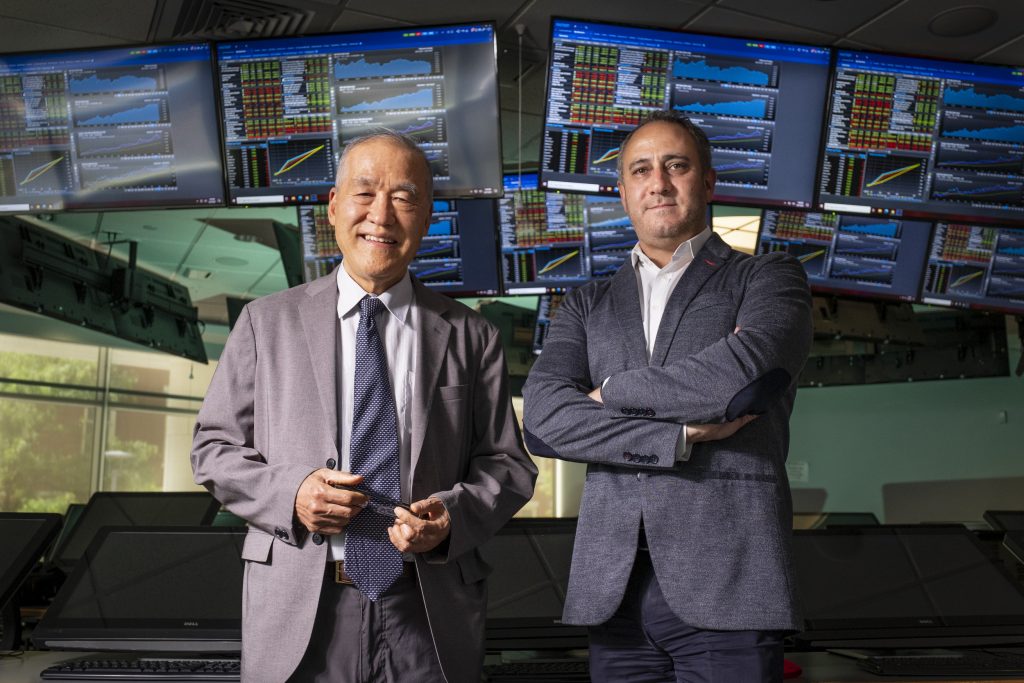
In 2017, JP Morgan CEO Jamie Dimon called bitcoin a fraud, going as far as to describe any of the company’s employees who were considering trading bitcoin “stupid.” A little more than a year later, JP Morgan launched its own cryptocurrency—JPM Coin—with its own proprietary blockchain technology.
What changed?
J. Jay Choi, the Laura H. Carnell Professor of Finance and International Business, has a hypothesis.
“Creative destruction,” says Choi. “The engine of economic growth. Something is destroyed, and if the company or individual is not willing to adapt, they will go down.”
In 2019, he and Bora Ozkan, associate professor of finance, edited the 20th volume of the International Finance Review, a theme-oriented annual journal founded by Choi. The volume focused on Disruptive Innovation in Business and Finance in the Digital World, specifically looking at blockchain, digital currency and artificial intelligence (AI).
“Two years ago, we heard a lot about disruption,” says Choi. “Now, it’s much more common to hear about collaboration.”
Older companies that used to dismiss financial technology or FinTech, have started to partner with companies to incorporate or even develop their own FinTech solutions internally. Ozkan illustrates this with an anecdote about ING, a large Dutch bank: “In 2018, the CEO said, ‘We are no longer a financial institution. We are a technology firm with a finance focus.’”
Ozkan also uses the startup Ripple as an example of the way that FinTech can make massive disruptions. Presently, transferring money between banks internationally takes four or five days and comes with a hefty fee. Ripple upended this traditional structure, cutting the required time to less than a day and using smaller banks to facilitate the transactions in a piecemeal manner.
How do they do it? Blockchain technology. While traditional banks rely on single systems to track their huge transactions, Ripple was able to leverage blockchain’s decentralized ledger to distribute these transactions among its many participant banks. In doing so, Ripple beat large banks like JP Morgan where it hurt most: their wallet.
Digital currencies are also having their moment, as demonstrated by JP Morgan’s swift recalibration.
“Financial institutions spend almost one-third of their resources on preventing money laundering and regulation evasion,” says Ozkan. “Cash can be difficult to trace. With these digital currencies, there’s a digital trail monitoring who is sending what. That could save a lot of money.”
But most of all, Choi was excited about the possibilities in AI. “We’re at the beginning of the fourth industrial revolution,” says Choi. “The AI revolution.”
AI can check people into a hotel, help write emails and analyze workplace performance. Recent innovations in cloud computing and big data have tripled their potency. While AI has already undoubtedly changed our lives, Choi and Ozkan argue its true potential will be unlocked once it is combined with other innovations, like blockchain.
“That’s always the case for technology,” says Ozkan. “Anybody who can figure out interoperability will be the winner.”
Tackling the next frontier of AI will likely be done by the next generation of researchers. Hopefully, like JP Morgan, they will adapt to meet the demands of the marketplace.
“I asked my oldest grandson, what are you going to study in college?” recalls Choi. “He didn’t know. I told him, ‘Consider AI.’”